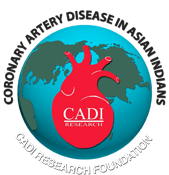Potassium and Blood Pressure
- Dietary potassium intake has been demonstrated to significantly lower blood pressure (BP) in a dose-responsive manner in people with and without hypertension.
- The average reduction in blood pressure with 4.7 g (120 mmol) of dietary potassium per day is 8/4 mm Hg, with even greater reduction in those with high intake of sodium. Blacks have a greater decrease in blood pressure than whites with an equal potassium intake.
- Potassium-induced reduction in blood pressure significantly lowers the incidence of stroke, coronary artery disease (CAD), and heart attacks. However, potassium also reduces the risk of stroke independent of blood pressure reductions. Increasing consumption of potassium to 5 g per day can decrease stroke by 8% to 15% and heart attack by 6% to 11%.1
- Because a high potassium intake can be achieved through diet rather than pills and because potassium derived from foods is also accompanied by a variety of other nutrients, the preferred strategy to increase potassium intake is to consume foods such as fruits and vegetables rich in potassium, rather than supplements.
- In the generally healthy population with normal kidney function, a potassium intake from foods >5 g/d (120 mmol/d) poses no risk because excess potassium is readily excreted in the urine. However, in individuals whose urinary potassium excretion is impaired, a potassium intake <5 g/d (120 mmol/d) is appropriate to reduce the danger of hyperkalemia.2
- Common drugs that can impair potassium excretion are ACE inhibitors, ARBs, nonsteroidal anti-inflammatory agents, and potassium-sparing diuretics.2
- Medical conditions associated with impaired potassium excretion include diabetes, chronic renal insufficiency, end-stage renal disease, severe heart failure, and adrenal insufficiency.2
- Elderly individuals are at increased risk of hyperkalemia (high blood potassium) because they often have one or more of these conditions or take one or more medications that impair potassium excretion.
Sources
1. Houston MC. The Importance of Potassium in Managing Hypertension. Curr Hypertens Rep. Mar 15 2011.
2. Gupta R, Guptha S. Strategies for initial management of hypertension. Indian J Med Res. Nov 2010;132(5):531-542.

